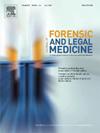The legal requirements for patient consent in Poland: A survey of doctors’ level of knowledge
IF 1.2
4区 医学
Q3 MEDICINE, LEGAL
引用次数: 0
Abstract
The legality of providing any medical intervention needs to be guarded by the requirement of a conscious and informed consent given by the patient. The legal requirements of granting such a consent in practice should apply not only to typical situations, when the patient is able to manifest his medical decision consciously, but also to more complicated cases where a patient cannot provide such a consent himself by the time the provision of service is given. This implies the need for the doctor to take actions specified by law, such as, but not limited to obtaining the consent of the guardianship court or intervene without the consent. The purpose of this study was to determine the level of knowledge of the currently in force Polish statutory requirements for legitimizing medical decisions in the relationships between physicians and patients. The study used anonymous surveys designed by the authors for the purpose of this study to test the level of knowledge of legal requirements regarding the principles under which patients provide consent to healthcare services and was conducted in two hospitals in Poland and Polish medical university. The survey results indicated that respondents do not possess sufficient understanding of the legal requirements for legitimizing acts or omissions of the physicians in the diagnostic and therapeutic process.
波兰患者同意的法律要求:医生知识水平的调查。
提供任何医疗干预的合法性需要得到病人有意识和知情的同意这一要求的保护。在实践中,给予这种同意的法律要求不仅应适用于病人能够有意识地表明其医疗决定的典型情况,而且也应适用于在提供服务时病人不能自己提供这种同意的更复杂的情况。这意味着医生需要采取法律规定的行动,例如但不限于获得监护法院的同意或未经同意进行干预。这项研究的目的是确定对波兰现行法律要求的了解程度,以使医患关系中的医疗决定合法化。该研究采用了作者为本研究目的而设计的匿名调查,以测试患者对医疗保健服务提供同意原则的法律要求的知识水平,并在波兰的两家医院和波兰医科大学进行。调查结果表明,受访者对医生在诊断和治疗过程中的行为或不行为合法化的法律要求缺乏足够的理解。
本文章由计算机程序翻译,如有差异,请以英文原文为准。
求助全文
约1分钟内获得全文
求助全文
来源期刊

Journal of forensic and legal medicine
MEDICINE, LEGAL-
CiteScore
2.70
自引率
6.70%
发文量
106
审稿时长
57 days
期刊介绍:
The Journal of Forensic and Legal Medicine publishes topical articles on aspects of forensic and legal medicine. Specifically the Journal supports research that explores the medical principles of care and forensic assessment of individuals, whether adult or child, in contact with the judicial system. It is a fully peer-review hybrid journal with a broad international perspective.
The Journal accepts submissions of original research, review articles, and pertinent case studies, editorials, and commentaries in relevant areas of Forensic and Legal Medicine, Context of Practice, and Education and Training.
The Journal adheres to strict publication ethical guidelines, and actively supports a culture of inclusive and representative publication.
 求助内容:
求助内容: 应助结果提醒方式:
应助结果提醒方式:


